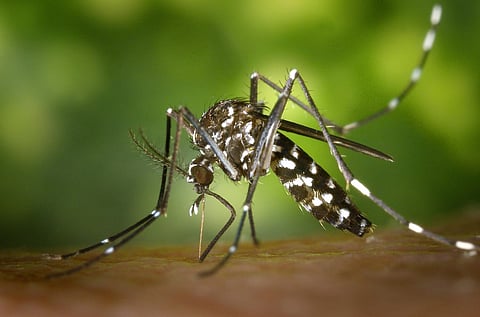

As the dark clouds gather and the first drops of rain hit the earth, there is a sense of relief from the heat. But along with the cool breeze comes an unwelcome guest — mosquitoes. And with them, a silent threat lingers among us — malaria. Every year, April 25 is marked as World Malaria Day and serves as a reminder that the fight against malaria is far from over — not just in terms of medicines but also with regard to food, rest, and ample care for both the mind and body.
Dr Shraddha Sangani, consultant internal medicine at Renova Century Hospitals, Banjara Hills, explains the cause of malaria, stating, “With the arrival of the rainy season, the risk of mosquito-borne illnesses like malaria increases considerably. As a physician, I often see a surge in malaria cases during this time. It’s important for the public to be aware of how malaria spreads, what early symptoms to watch out for, and how to recover well after treatment.”
Malaria doesn’t just arrive with a fever — it stays. Even after the body fights off the parasites, one can feel weak, struggle with a poor appetite, and have a foggy mind. “Malaria weakens the body significantly, so nutrition plays a vital role in recovery. A balanced diet rich in protein, iron, and vitamins is essential,” Dr Shraddha advises, further stating, “One must include foods like eggs, lentils, dairy, leafy greens, beetroot, and citrus fruits in their diet. Always stay hydrated with water, coconut water, soups, and herbal teas. Having small, frequent meals that are easy to digest is ideal.”
Dr Deepa Agarwal, founder and nutritionist at Nutriclinic, agrees that food is a quiet healer for malaria. “Food plays a crucial role in recovery by providing essential nutrients that support the immune system, replenish lost energy, and help the body repair itself. A balanced diet rich in vitamins, minerals, and proteins can aid in faster recovery,” she says.
Some beneficial foods include fresh fruits like oranges, lemons, and papayas, leafy greens like spinach and kale, nuts and seeds like almonds and pumpkin seeds, whole grains like brown rice and quinoa, lean proteins like chicken, fish, and legumes, and hydrating foods like clear soups and coconut water — things found in most Indian kitchens.
But food doesn’t just heal the body — it also supports the mind. “Malaria can lead to feelings of fatigue, irritability, and depression. A diet rich in omega-3 fatty acids (found in fish and nuts), complex carbohydrates, and foods high in B vitamins can support mental health and mood stability,” Dr Deepa explains.
Dr Shraddha explains the correlation between malaria, mental health, and energy levels. “Even after the fever subsides, patients may experience fatigue, brain fog, irritability, or low mood. This is due to both the infection and the body’s healing process. In very severe cases, the infected red blood cells prevent adequate oxygenation and nutrition. The parasite causes an inflammatory response, leading to brain swelling. This is called cerebral malaria, which is life threatening,” she warns.
Both experts agree that the recovery process should be gentle and patient. “Most people recover within one to three weeks. It’s safe to return to work once the fever has resolved, strength is regained, and your doctor confirms recovery,” says Dr Shraddha. To regain strength after recovering from malaria, Dr Deepa underscores that one must eat nutrient-dense foods, stay hydrated, gradually increase physical activity, and get adequate rest and sleep.
Healing from malaria isn’t just about surviving the illness — it’s about restoring the balance between nourishment, rest, and resilience. And sometimes, the first step to feeling like yourself again begins with a simple home-cooked meal.